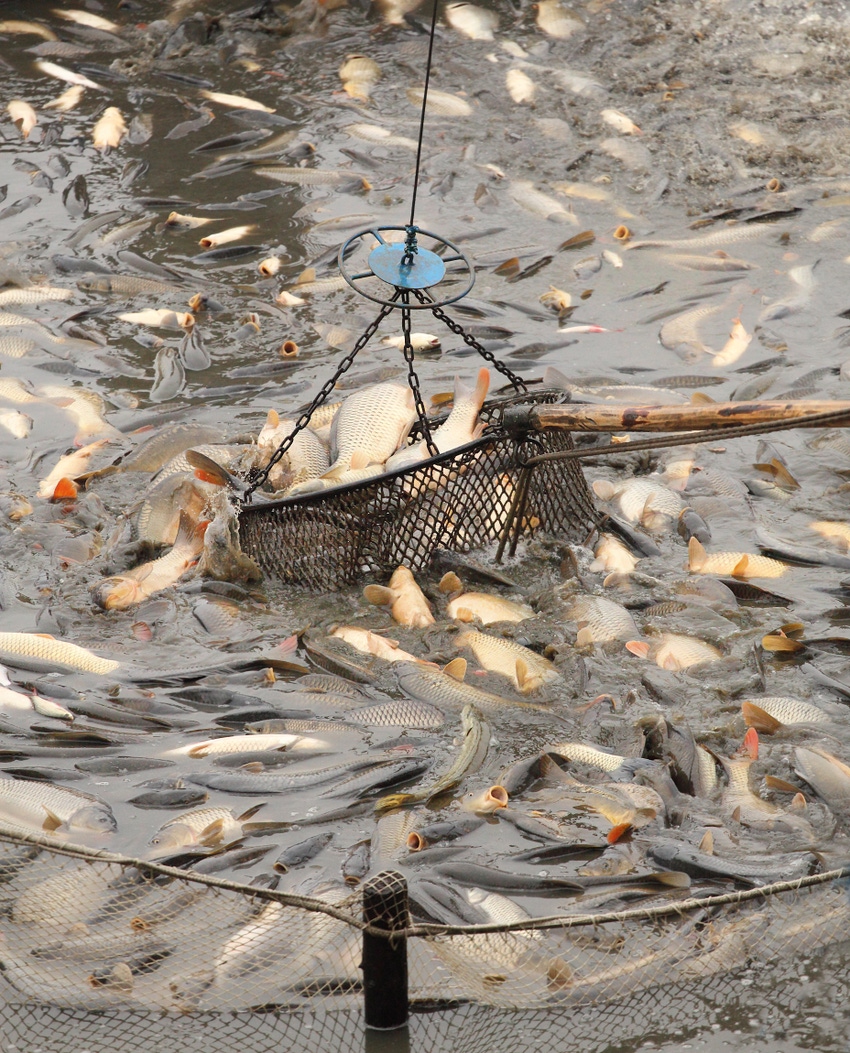Project aims to build cloud-based service that accurately diagnoses a range of diseases affecting farmed fish.
October 23, 2019

A quick, cost-effective, cloud-based platform that could solve one of fish farming’s biggest challenges has received a $100,000 grant for concept development and testing, according to the University of Queensland in Australia.
Dr. Andrew Barnes with the University of Queensland is helping bring together years of fish pathogen data, combining it with new pathogen DNA sequences from infected fish, aiming to build a cloud-based service that accurately diagnoses a range of fish diseases.
“Aquaculture is one of the fastest-growing food production sectors in the world,” he said. “It’ll be essential to meeting the 40% increase in demand for food fish expected by 2030, according to the U.N. Food & Agriculture Organization, and is already providing incomes and new jobs for women and men of all ages, particularly in Africa."
Barnes added that a "key challenge to aquaculture is outbreaks of disease. Tilapia lake virus and streptococcal infections, among others, can quickly wipe out farmed fish and are becoming more common as a result of overstocking, poor hygiene practices and insufficient controls at hatcheries and farms.
“Managing outbreaks is often hindered by limited knowledge of the pathogens, which, in turn, contributes to antimicrobial resistance, as farmers use the wrong kinds or quantities of antibiotics on their fish,” he said.
The team behind the concept was one of five winners in the Inspire Challenge 2019, organized by the CGIAR Platform on Big Data in Agriculture.
“The technology — which harnesses the power of rapid genome sequencing — provides all of the information we need to make informed decisions on disease control without the need for expensive pathogen-specific tests and tools," Barnes said.
“The sequences enable you to infer the origin of a pathogen; see how it is evolving and moving through different environments and across international borders," he added. “Most importantly, it allows you to identify possible antimicrobial resistance genes and factors relevant to vaccine formulation. With this kind of knowledge, we can provide very specific advice on how to control and prevent outbreaks.”
Project leader Dr. Jerome Delamare-Deboutteville of WorldFish said it would generate genomic sequences from pathogens of tilapia and carp, the world’s most important farmed fish.
“Rapid diagnosis combined with effective management can mean the difference between a fish farmer losing all her stock within days of a disease outbreak and consistently producing a bumper harvest,” Delamare-Deboutteville said.
“Multiply that across one of the world’s fastest-growing food production sectors, and all of the vital nutrients, jobs and opportunities it provides, and you could have an enormous impact on well-being in developing countries," he added. “This could represent a quantum leap in responding to the major production constraints for farmed fish, and could be applied to rapid disease detection, response and prevention in all farmed animals around the world.”
The University of Queensland said the platform is possible thanks to open source machine learning technology provided by Wilderlab NZ.
Source: University of Queensland, which is solely responsible for the information provided and is wholly owned by the source. Informa Business Media and all its subsidiaries are not responsible for any of the content contained in this information asset.
You May Also Like


.png?width=300&auto=webp&quality=80&disable=upscale)
